Spotlight
The tech-dominated Nasdaq index tumbled early Friday after shares of Microsoft and Google parent Alphabet sank on disappointing earnings, but the Dow managed a small opening gain.
About five minutes into trade, the Dow Jones Industrial Average was at 18,000.32, up 17.80 points (0.10 percent).
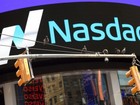 Full Story
Full Story
Singapore authorities have raided several brokerage houses for possible violations of securities laws, officials and media reports said Friday.
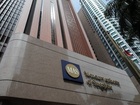 Full Story
Full Story
Europe's main stock markets dipped at the start of trading on Friday, with sharp focus on the embattled auto sector as German car giant Daimler launched a probe on emissions.
 Full Story
Full Story
Oil prices climbed in Asia on Friday, heading for their third weekly gain after OPEC said it was open to fresh talks on freezing output despite the failure to reach a deal at the weekend.
 Full Story
Full Story
Japanese mobile giant SoftBank on Thursday hit back at a bid by a group of investors to unseat the former Google executive seen as heir apparent to its billionaire founder Masayoshi Son.
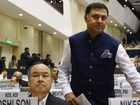 Full Story
Full Story
Global exports of Swiss watches plummeted in March, amid a dramatic contraction of sales in main markets Hong Kong and the United States.
 Full Story
Full Story
Oil prices built on recent gains Thursday after data showed U.S. production fell to 18-month lows and Iraq pushed for a fresh meeting of crude majors on limiting output.
The advances come just days after the collapse of weekend talks aimed at negotiating an output freeze, which had fueled worries a global supply glut would continue.
 Full Story
Full Story
Ecuador announced drastic economic measures late Wednesday, including a hike in some taxes and mandatory wage contributions, to deal with the aftermath of the devastating earthquake that killed more than 500 people and injured over 5,000.
Saturday's 7.8-magnitude quake was the worst to hit the South American country in decades, causing hundreds of buildings to collapse and damaging roads and other key infrastructure in tourist areas.
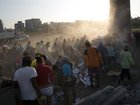 Full Story
Full Story
Outside a small store on a dirt track in the remote Ethiopian town of Doni, long queues wait for government cash handouts by the most modern of methods: mobile phone.
Ethiopia, Africa's second most populous country and one of its fastest growing economies, is pushing a new electronic payment service by phone -- called M-Birr, or "mobile-money" -- in a bid to bring millions into the banking system and financial services.
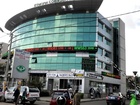 Full Story
Full Story
Saudi Arabia will take a $10 billion loan from foreign banks to help close the gap in its state finances from collapsed oil revenues, Bloomberg News reported on Wednesday.
Citing three people with knowledge of the matter, Bloomberg said it would be the first sovereign loan in at least 15 years to the kingdom, the world's biggest oil exporter.
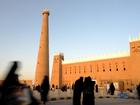 Full Story
Full Story




